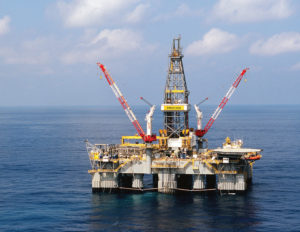Letter from La Vigie dated 22 July 2020
Media country, real country
Contemporary media are disappointing, caught in the vise of immediacy, emotion and moral indignation. They therefore contribute greatly to the era of “post-truth” and now constitute a disconnected and subjugated class. Worse, they distance political leaders from their long-term mission and reinforce the drift towards polarization, at the risk of radicalization and therefore division. The strategist cannot remain indifferent to this deleterious development.
To read the article, click here
To the south
A strategic vacuum has set in in the Mediterranean, which Turkey and Russia have taken advantage of by arbitrating the inextricable Libyan question in their own way. The time has come for the southern Europeans to take the lead and to conduct with their vis-a-vis a truly trans-Mediterranean strategy to preserve their interests and contribute to the development and security of a Southern flank that is carrying risks that are drawing closer together.
To read the article, click here
Lorgnette: Ministry of the Sea
After two unsuccessful attempts (81/83 and 88/91), the recent creation of a Ministry of the Sea is raising hopes for a dynamic sector at the service of an overall maritime strategy. France’s maritime assets are well known (LV 145), as are the pitfalls on which the previous ministries ran aground.
The great complexity and cross-cutting nature of maritime issues requires a strong ministerial and political role, building on the achievements, while the stakes and opportunities offered by the oceans are considerable:
- a common good to be protected, studied and exploited sustainably;
- economic prosperity and development of our society drawn from our EEZs by an eco-responsible commitment;
- integration of our maritime sectors, to lead the world in the wake of our blue growth, by building an innovative economic and ecological force (fishing, food, construction, transport, propulsion, marine energies, ports, river sector);
- guarantee the safety and security of our activities and maritime spaces with regard to international law.
These objectives, taken from the PR’s speech (Montpellier, 3/12/19), are reflected in the remit of the new ministry (15/7/20). May it become, with everyone’s help, the sought-after strategic accelerator.
JOCV
Subscribers: click directly on the links to read online or download the pdf number (here), always with your login/password. New reader: read the article in the issue, by clicking on each article (2.5 €), or by subscribing (discovery abo 17 €, annual abo 70 €, orga abo 300 € HT): here, the different formulas.
Photo credit : Kris Olin on Visual hunt / CC BY-NC-SA




